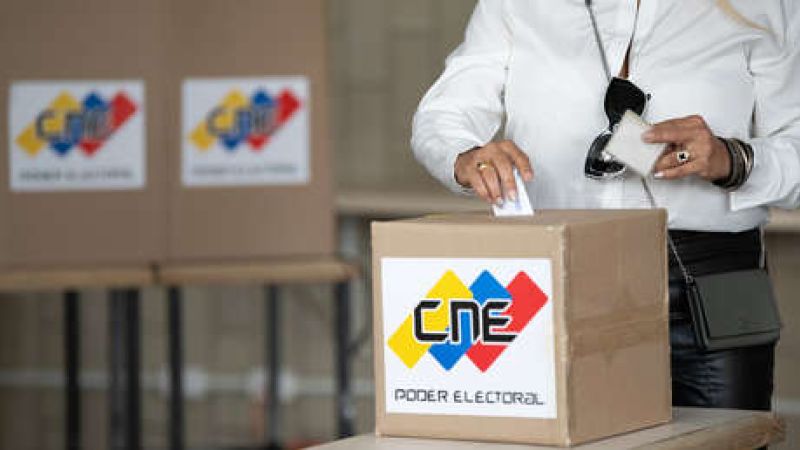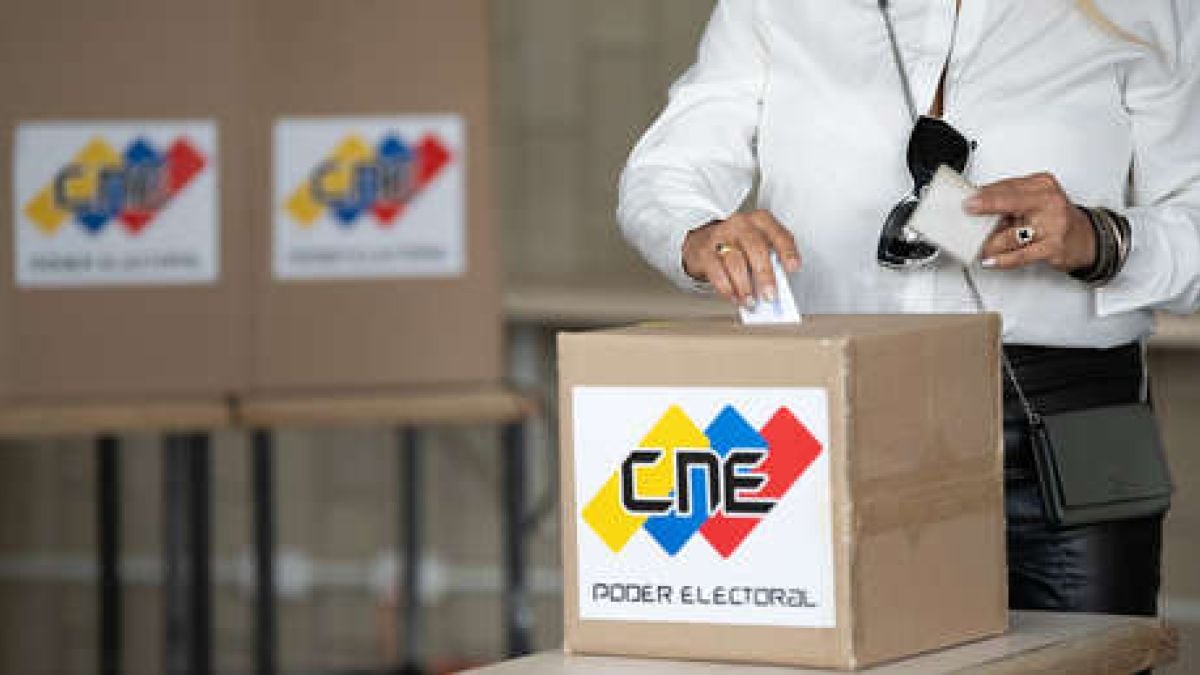From Tragedy to Farce: The Latin American Right Repeats History with Venezuela


Courtesy: Rusi

Published at: 08/08/2024 11:06 AM
In the last week, the Latin American right (including “self-described” progressive sectors in the group) has continued with its old tradition of being out of step with global processes.
This time it has once again been Washington's front line in an attempt to overthrow the government of Nicolás Maduro, intending to name a 'Guiadó 2.0'. As Marx said, taking up Hegel's phrase, history is repeated twice, once as a tragedy and once as a farce.
The difference is that the world when Juan Guaidó proclaimed himself interim president and was recognized by many countries changed forever. Today we live in a, still young, multipolar world where smaller countries vulnerable to Western hegemony have more options to develop.
The Venezuelan government has been one of those who has been able to understand the changes and adapt to them. For this reason, the results in the face of this year's coup attempt are so different.
The tragedy of Venezuela
Since 2014, the script of color revolutions has been applied in Venezuela, which is also used in other parts of the world such as Ukraine or Hong Kong.
It consists of the same dynamic: as a result of a problematic event in society (in this case, the electoral results), they provoke violent protests. If they succeed in overthrowing the government, one speaks of democratic success. If repressed, governments are accused of violating human rights and apply unilateral coercive sanctions.
Sanctions
Venezuela is in the second case the United States applied the first sanctions against the authorities of that country in 2014. The following year, the U.S. government classified the South American country as a threat to its national security, placing the Venezuelan economy in a vulnerable situation. This was a blow to the private sector and affected the nation's credit rating. The effectiveness of the sanctions was only possible because of the dependence on the dollar.
Later, while still in the Barack Obama administration, the Executive Order of Venezuela was signed, which has been renewed and extended every year by successive US presidents.
Donald Trump took them to a new level, including direct sanctions against PDVSA, blocking their transactions and access to the US financial market. In 2019, it applied a total embargo on the economy, as they have been doing since the sixties with Cuba. In addition, the "Guiadó Plan" and the consequent theft of Venezuelan assets were carried out.
The list goes on and can be found in official U.S. documents, as they seem to take pride in their actions. The important thing is to understand its consequences.
In 2021, Alena Douhan, UN special rapporteur on the negative impacts of unilateral coercive measures, explained that the Venezuelan government was surviving on 1% of its pre-sanctions budget.
Some argue that the Venezuelan crisis started earlier, which is misleading. The crisis existed, but as researcher Francisco Rodríguez has explained, the sanctions turned a cyclical crisis into a humanitarian one. In 2019, Rodríguez himself told The New York Times that he feared that the application of the sanctions announced that year could result in a famine for the country.
The most obvious consequence was the migratory phenomenon. Recently, The Washington Post itself published that then-President Donald Trump was warned that sanctions could push many Venezuelans out of their country, just the opposite of what he had promised his voters.
Even so, they were applied. They most likely bet that a very small percentage of these people — affected by a crisis that Washington aggravated to its peak — would arrive at the doors of the United States, and that the majority would be watered by countries in the region without any capacity to assimilate them, as happened.
Venezuela's struggle for its sovereignty and for a multipolar world
Because of the actions of the extinct Lima Group, Venezuela was diplomatically besieged by much of South America and part of Central America, while it was fighting its own internal 'Economic War', spurred on by the punitive sanctions of the United States and the European Union (EU). For this reason, the Venezuelan Executive began looking for partners at a global level.
Venezuela has a long multipolar tradition. Hugo Chávez was a visionary when he said, in 1998, that the 21st century would be multipolar. For this reason, Chavism always opted for regional integration to make it one of the blocs of the new world and strengthened ties with other countries around the globe. Maduro decided to strengthen the path traced by Chávez, maintaining strong ties with the countries of the Bolivarian Alliance for the Peoples of Our America - Peoples' Trade Agreement (ALBA-TCP) and prioritizing relations with its global partners.
In these years, Venezuela strengthened its relationship with Russia. Trade relations were also established with countries such as Turkey, Syria and, above all, with Iran.
Probably the most important diplomatic success came during Maduro's visit to China in 2023. The Venezuelan president traveled to four Chinese cities, where he had important meetings with authorities and businessmen. In Beijing, he met with President Xi Jinping and it was decided to elevate the diplomatic link to a “strategic partnership under every test and at all times”, the second most important level in Chinese diplomacy.
In parallel with diplomatic achievements, the Venezuelan government accelerated structural reforms of the economy to cut dependence on the outside world. Today, Venezuela produces almost all of the food it consumes.
In addition, in August 2023, the creation of special economic zones for the diversification of production chains was approved. Meanwhile, advances in de-dollarization will allow the country to open up to more international markets. It is a very recent process that is committed to sovereignty.
As a result, Venezuela has been experiencing 11 quarters of economic growth. The International Monetary Fund (IMF) projects that, this year, it will have growth of 4%, the highest in the region. The Venezuelan economy is beginning to recover, without depending on oil, and this time, the United States will not be able to sanction it.
In addition, the diplomatic alliances strengthened in recent years support the country. Immediately after the elections, China, Russia and Iran, the three pillars of the multipolar world, recognized the choice of Maduro. Venezuela has become a key ally in the region and they will not allow it to collapse.
Maduro responds to the farce
Maduro's first reaction to obvious external interference after the elections was to withdraw diplomats from seven Latin American countries and expel representatives of those countries from Venezuela. The message was clear: we don't need them.
At the most recent meeting of the Organization of American States (OAS), which took place on July 31, the votes were not reached for the resolution giving orders to Venezuela, which is not part of the organization, in electoral matters. Then, Peru, leading the collective insanity, recognized Edmundo González as elected president. For this reason, Venezuela formalized the rupture of relations.
The United States also followed Peru's path, but when Maduro said he would hand over oil and gas exploitation rights to the countries of the BRICS block, they immediately backed down from Washington. To everyone's surprise, Manuel Adorni, spokesman for the Argentine presidency, announced that his country was also cautiously awaiting the results, dismissing what Javier Milei published on social networks.
Meanwhile, countries such as Colombia, Brazil and Mexico have taken more cautious decisions. The first two have said that they expect final results; while Mexico has indicated that it respects the principle of non-interference in the internal affairs of other countries.
This attempt at a Guaidó 2.0 has left the region divided between countries that understand how the world works and those that are left in the past. The Venezuelan government has reaped the fruits of its diplomatic work in recent years and, for now, has disbanded the right wing.
The Crossroads of the Latin American Right
It is worth asking how it has become natural for leaders to feel emboldened to interfere in the internal affairs of other countries and also receive the support of the population.
More than one transmitted the same idea to me on social networks: you are far away, you don't have to deal with the migratory phenomenon.
Indeed, when I left Peru, the migratory situation was quite recent. I remember that in the media they talked about “Venezuelan refugees” fleeing the “Venezuelan dictatorship”. It sounded strange to me that they didn't mention coercive sanctions.
Apparently, so much lying for almost six years managed to turn something into truth. The perception has been created that Venezuelans who decided to leave their country are victims of an “evil dictatorship”, and not economic migrants who fled as a result of sanctions.
Therefore, in their mentality, if Maduro leaves power, the migrants will return to Venezuela and the problems will end. Hence, ordinary people in other countries in the region feel the Venezuelan electoral process as their own and applaud their leaders. The problem is that they played with them.
Before the sanctions, Venezuela had a cyclical crisis, very common in a region that exports raw materials and is dependent on the international market. In the past, countries in the region went through the same thing, millions also had to migrate and, by the way, many of them settled in Venezuela.
The solution to the migration crisis has always been to advocate ending sanctions and letting Venezuela follow its independent path. The rulers of the time did not want to and caused the current crisis, with the help of the corporate media. I suppose that a potential success of Chavismo meant a risk for them.
So far, the lack of vision of the Latin American right has left it isolated and several problems with no solution in sight, especially with regard to migration, because ties with Venezuela have been severed.
Now they have two options left. Either keep the farce longer, or grow politically, recognize the Venezuelan process and sit down with Maduro at the table to find diplomatic solutions to common problems.
And, perhaps, they could start working for a real integration of the region, regardless of who is the current government.
RUSSIA TODAY/Mazo News Team